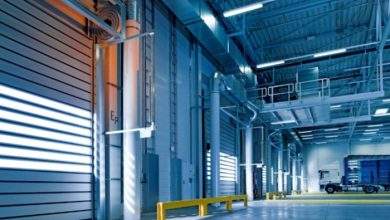
Labels do more than just display a brand name-they provide essential information like ingredients, nutritional values, and expiration dates. They also ensure compliance with industry regulations, helping consumers make informed choices.
But in the food and beverage industry, where products often face moisture, condensation, and temperature changes, a standard label just won’t cut it. Without proper protection, labels can smudge, peel, or fade, making crucial details unreadable and diminishing a product’s appeal.
So, why are waterproof labels a necessity rather than a luxury? Let’s dive in.
Why Do You Need Labels That Are Waterproof in the Food & Beverage Industry?
From cold storage to transportation, food and beverage products go through harsh environmental conditions. Without durable labels, important information can fade, smudge, or peel, making it unreadable. This can affect branding, compliance, and even consumer trust.
Here’s why waterproof labels are a must-have in the industry:
1. Exposure to Moisture
Refrigerated products and chilled beverages are constantly exposed to condensation and humidity. Food label stickers tend to smudge, fade, or peel, making key details difficult to read. Moisture also weakens the adhesive and print quality, causing labels to deteriorate over time.
2. Durability in Transit
During distribution, food packaging, cans, and bottles are handled roughly. A waterproof label guarantees that branding is preserved even in high-humidity settings or during lengthy transit. The lack of a sturdy, water-resistant label raises the possibility of wear and tear during transportation.
3. Compliance with Industry Standards
Food packaging regulations require that labels remain legible throughout a product’s shelf life. Smudged or peeling labels can lead to compliance violations, product recalls, and loss of consumer trust. Inaccurate or missing information might even result in legal issues and harm a brand’s reputation.
H2: What Features Make a Label Truly Waterproof?
For a label to be truly waterproof, it must be designed for durability and readability-even in the toughest conditions. Here’s what sets a high-quality waterproof label apart:
1. Water-Resistant Materials
Generally speaking, labels that are water-resistant are composed of materials that are significantly more resilient than conventional paper labels. Materials like synthetic films, vinyl, and laminated paper are specifically designed to endure moisture, so they retain their integrity even in the most demanding conditions. Paper, on the other hand, can absorb moisture and break down rapidly.
2. Strong Adhesive for Secure Attachment
A waterproof label isn’t just about the material-it also needs a strong adhesive that can withstand humidity, condensation, and temperature changes. A high-quality adhesive ensures the label sticks firmly to glass, plastic, metal, or other packaging materials without peeling or bubbling.
3. High-Quality Print for Long-Lasting Readability
Waterproof labels must resist smudging and fading to keep important details—like ingredients, nutritional facts, and expiration dates-legible over time. Advanced printing techniques such as UV printing or thermal transfer printing ensure the text stays crisp, clear, and vibrant, even when exposed to moisture.
Can Labels That Are Waterproof Be Both Stylish and Sustainable?
Absolutely! Waterproof labels don’t just serve a functional purpose-they also play a huge role in branding, consumer perception, and sustainability.
Custom labels help brands stand out with vibrant colours, unique finishes, and creative designs, ensuring that waterproof labels are just as visually appealing as they are durable. They can be applied to bottles, cans, pouches, and plastic containers, helping businesses maintain a consistent and professional look across their product range. A high-quality, waterproof label not only protects against moisture but also enhances consumer trust and increases a product’s perceived value.
With eco-conscious consumers on the rise, brands are now embracing sustainable label options. Waterproof labels can be made from recyclable and biodegradable materials, using low-impact adhesives and eco-friendly inks to reduce environmental harm. This means businesses don’t have to choose between durability and sustainability-they can have both.
Final Words
Choosing the right waterproof label is key to maintaining customer satisfaction, compliance, and brand integrity. A high-quality, long-lasting label ensures that product information stays clear, branding remains intact, and industry regulations are met.
By using premium labels, you can be sure that your packing will continue to be efficient and professional whether your items are handled frequently, shipped over long distances, or stored in frigid conditions. Companies can improve their packaging while still satisfying the demands of contemporary customers by prioritising sustainability and durability.




